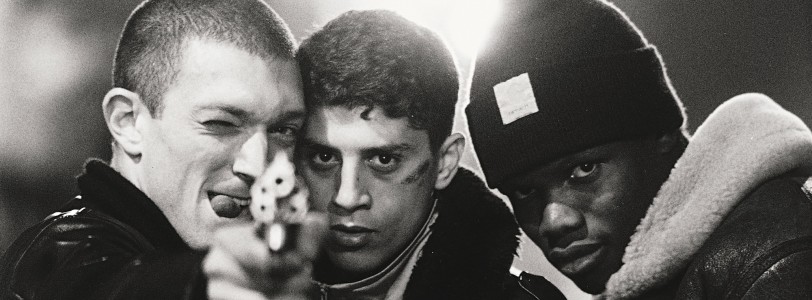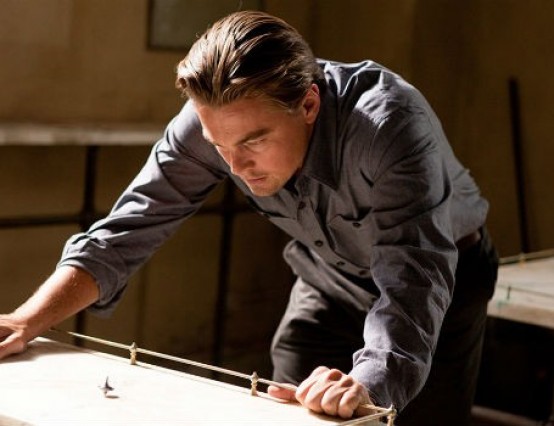Receiving widespread critical acclaim and being well received in both France and globally, La Haine (Hate) is a film that delves into the infantile, macho world of the explosive trio whose struggles can be seen as representative of those which effect people worldwide, an idea confirmed by the opening shot of the film being a long shot of a Molotov cocktail exploding over a globe, suggesting that the following issues aren't just prevalent in France, but are the whole world. It comes to no surprise that the film garnered a standing ovation at the 1995 Cannes Film Festival, where Kassovitz was awarded the best director prize.
the narrative involves three young men; An Arab named Said, an African named Hubert and a Jew named Vinz, who spend an aimless day in a sterile Paris suburb, as social turmoil swirls around them and they eventually get into a confrontation with the police. For me, the Characterisation depicted in the film is one of the most salient I've seen. It is as though not only the trio feel like they don't belong to France, but that they choose Americanised culture simply because it is not French, it is a form of escapism. The costume of not only the trio but various other youths, the use of the word 'homeboy' and even Vinz De Niro impression of the Travis Bickle persona, suggest that popularity of American culture somewhat plays as a metaphor for liberty, which is a ironic considering the national French motto is "liberty, equality, fraternity".
The cinematography within the film is creative and meaningful, clearly being inspired by Kassovitz's influence from director Martin Scorsese and Hitchcock. Many of the shots establish a sense of being out of place and divided, from the compressed zoom, which plays around with versilmilitude, upon the trio's arrival to Paris which was mastered by Hitchcock in the 50's , to the use of mirrors in the café toilet scene, which produces a sense of disorientation and isolation between the characters despite them being so physically close. The use of Black and white makes the film seem timeless, while also adding to the sense of a literal lacking of life within the cite.
This is all punctuated by the use of music; eschewing contemporary tendency for ubiquitous music on a soundtrack and avoiding the use of film music for emotional enhancement. It is the music which plays and important role in the cultural identification of the film. It evokes a sense of utopian space, especially in songs such as Bob Marley's 'Burnin and Lootin' which despite its belligerent lyrics, has an elegiac quality and underlines the problem of political ineptness within France. Marley pleas for them to "give me food and let me grow", which underpins the most notable quote from the film, "its not the fall that matters, it's the landing", suggests that if France is the man jumping of the building, then society is the pavement.
La Haine is one of the most significant social commentaries which subtly attacks the frontlines of power within France, whilst also worldwide. Its tagline of "hate breeds hate" highlights the overall issues which are depicted trough the themes of power, poverty, conflict and social divide within Kassovitz masterfully created piece of modern day art.








A great review of a fantastic film!